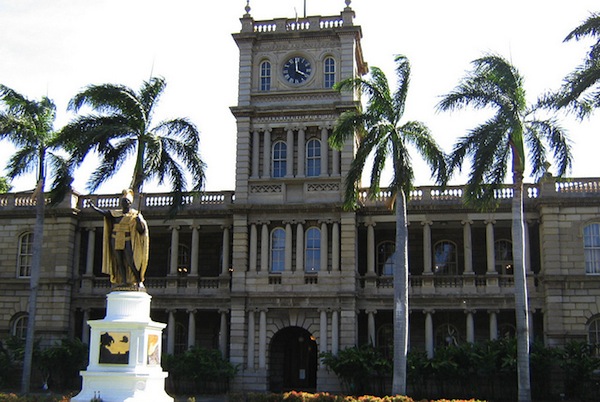
Honolulu Civil Beat wants to raise the stakes in the fight for public’s right to know.
Last week Civil Beat announced the founding of a nonprofit legal aid organization designed to provide assistance to groups and individuals who are seeking access to government information. The Civil Beat Law Center for the Public Interest will be part law clinic and part advocate, helping both journalists and citizens untangle freedom of information laws and, when necessary, take legal action against government agencies. The center may be the first of its kind: a full-time legal aid project developed as an offshoot from an individual media company.
The Law Center, like Civil Beat itself, receives funding from eBay founder Pierre Omidyar. But the money is coming from the Pierre and Pamela Omidyar Ohana Fund at the Hawaii Community Foundation, not Omidyar himself. And while the law center will provide assistance to Civil Beat, the organizations will be separate from one another.
“It builds on Civil Beat’s core mission, which is using watchdog journalism and public discussion to pierce the veil of government transparency and hold government more accountable than it has been in the past,” Civil Beat editor Patti Epler said.
Like many news outlets, Civil Beat has had its share of battles over public records. Earlier this year, it published In the Name of the Law, a five-part series on police misconduct and transparency in disciplinary action. Not long after Civil Beat launched, one of its first projects was an examination of public employee salaries. Every story and series presents records challenges, whether it’s the high fees associated with copying documents or unreasonable resistance from agencies, Epler said.
But public information disputes tend to be scattered across a constellation of government agencies. And even when a media outlet can bring pressure for change to records practices, that attention doesn’t last long, Epler said. “We thought about hiring a staff attorney to work for Civil Beat and take cases,” Epler told me. “We started talking with Pierre more about it and his suggestion was the nonprofit group open to anyone in the state, not just journalists.”
Brian Black, who previously worked in the Honolulu Corporation Counsel’s office, is the executive director of the law center and the organization’s only employee at the moment. His overall goal, he said, is to be a resource first and foremost. “The primary mission of this organization is to focus on improving transparency,” he said. One way to do that is through guidance in individual cases. In his role, Black could consult with Civil Beat, but also with the daily Honolulu Star-Advertiser or individual bloggers and media nonprofits.
And that’s one reason why the law center is separate from Civil Beat. Carrying the name of the site brings along an affiliation that lets people know the center’s focus is on media. But by being independent of Civil Beat, other journalists can have some assurance their stories won’t be tipped off to a competitor. “The idea is to send a signal that we now have, not only at Civil Beat, but everyone has someone on their side, an advocate,” she said.
Over time, newspapers and other media companies have banded together to create resource groups, things like the Investigative News Network’s support for nonprofit news sites, or the Legal Defense Hotline at the Reporter’s Committee for Freedom of the Press. Jeff Hermes, director of the Digital Media Law Project at Harvard’s Berkman Center for Internet and Society, said it’s the first instance he’s heard of an individual media company spinning off a legal aid group. Hermes said many media companies have limited use for legal aid or advocacy groups before turning to their own attorney to pursue a case. The Civil Beat Law Center could be unique in that it plays both sides of the fence.
Epler said Black is the right person for the job because he looks to find compromise between parties. “We really hope it is seen as a signal that finally the public and the media have someone on their side who not only can help them through what often becomes a legal matter, but will follow through and pursue cases if necessary,” she said. Black said the cost of litigation is often one of the biggest impediments to challenging records laws in Hawaii. The law center has the funding to go to court when necessary, he said. Another reason to consider litigation is that the courts award a portion of legal fees, Black said.
The hope is that the Law Center will have a broader affect in aggregate; by helping a variety of groups the nonprofit will be a constant advocate for people’s right to know, Black said. “Having the center available, we’ll be able to persistently raise these issues, to make sure policy decisions and issues are being vetted by all branches of government and not being simply responded to by one government agency,” he said.
Image by Adam Theo used under a Creative Commons license.